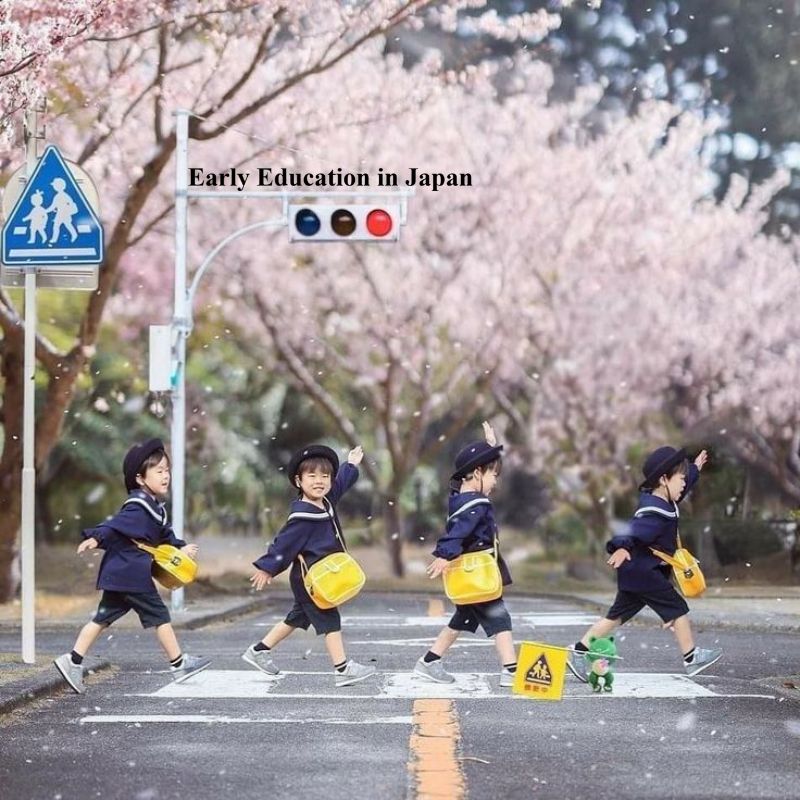Early Education in Japan. Early childhood education in Japan is known as one of the most structured systems and focuses on character building from a young age. In this country, early childhood education starts from yōchien (kindergarten) and hoikuen (daycare), which are aimed at children aged 3 to 6, before they enter elementary school.

Formation of Good Habits, Discipline, and Social Skills
Although yōchien and hoikuen have slightly different goals – yōchien places more emphasis on formal education while hoikuen focuses more on caring for children with working parents – both emphasize the formation of good habits, discipline, and social skills.
A unique example is the habit of children cleaning the classroom and toilets.
In these schools, Japanese children learn not only basic reading, writing, and arithmetic, but also important values such as cooperation, respect, cleanliness, and responsibility. One unique example is the habit of children cleaning the classroom and toilets together every day.
Hands-on Experience and Nature Exploration
Early childhood education in Japan also places great emphasis on hands-on experience and exploration of nature. Children are often taken to outdoor activities, playing in parks, planting plants, or making crafts from natural materials. This approach aims to foster creativity, curiosity, and an understanding of the world around them.
The main focus is not on academic results
Interestingly, the main focus is not on academic results, but on the learning process and personality development. Teachers in Japan are highly trained to observe the psychological and emotional development of children.
Parental support is also the key to educational success
Parental support is also key to the success of early childhood education in Japan. Schools often hold meetings and activities with families, building close communication between educators and parents in accompanying children.
With a comprehensive and balanced approach between character education, social and cognitive child development.
